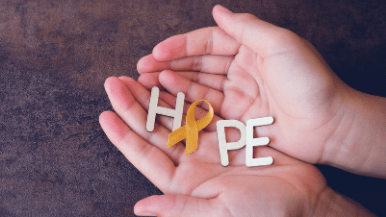Rarely in a lifetime, let alone a medical career, one person has the opportunity to affect another person in a profound way. Even more rare, both people may share in the joy of enlightenment. Such an event recently happened with me.
 Having a usual day in the office, I was called by my receptionist and asked if I would be able to see an unscheduled patient because she was not infertile or interested in having children until next year.
Having a usual day in the office, I was called by my receptionist and asked if I would be able to see an unscheduled patient because she was not infertile or interested in having children until next year.
The patient was told she had PCOS (Polycystic Ovarian Syndrome). Since I was available, I obliged believing this would be a simple consultation.
Solving Problems
We began discussing Marie’s (not real name) frustration over her symptoms: a long history of irregular menses, pelvic discomfort and acne. Feeling experienced in PCOS, I provided Marie the explanation of why PCOS caused her problems and how we can help alleviate them. Marie complained, “all doctors just tell me to take the birth control pill but it’s not helping any longer.” After 20 minutes, Marie shared her burden of significant stress over turning 30 years of age, starting her own business, and planning to be married…all this year! Not surprisingly, her symptoms all worsened this same year. When I raised this coincidence to Marie, she was relieved to realize stress may be the culprit in causing all her troubling symptoms that were previously being managed by the birth control pill. I then offered to examine Marie to confirm my diagnosis but was quite proud of myself for making this connection for her. My hubris proved to be faulty.
The exam was entirely normal and, unexpectedly, she had no evidence of dark hair growth in the usual areas of PCOS women. Toward the end of the physical and because she was on birth control pills, I examined and asked about her legs to insure there was no evidence of a blood clot. This is when Marie casually conveyed, “my ankles have always been swollen.” When I asked her to elaborate, she explained her swelling has been present ever since she was a dancer.
It is not exaggeration when I describe my reaction as paralyzing. Had I not examined her legs and she offered the history of swollen ankles, I would not have learned she suffered from the female athlete triad. She further added as a competitive dancer she also developed an eating disorder called bulimia (a condition where a person self-induces vomiting following meals). The triad involves lack of menses, eating disorder, and bone loss from the ovaries not producing estrogen due to a disruption of brain signals. Anorexia/bulimia has a 5-15% mortality rate and up to 30% of women remain without menses despite recovery from the eating disorder.
As a physician, I had been taught if you give the patient enough time, she will tell you her diagnosis. Knowing the true origin of her symptoms and diagnosis, Marie was overwhelmed and relieved. She never shared this history with any prior physician and my revelation was clearly serendipitous. As she left the office with more hope than when she arrived, she thanked me for helping her but I expressed my gratitude to her for reminding me why I embrace the art of medicine and how privileged I am to care for patients.






